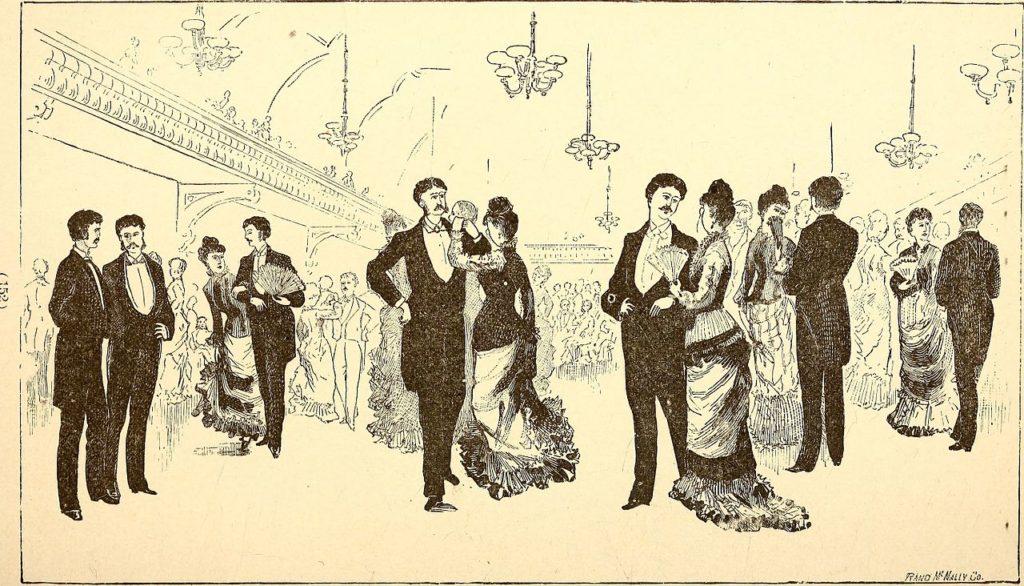English for Job Interviews – Introduction
 English is the global language of business, and proficiency in the language is essential for success in today’s job market. For non-native English speakers, the job interview can be a particularly daunting experience. The ability to communicate effectively in English is critical during the interview process. In this article, we will explore the importance of English in job interviews and provide tips and strategies to help non-native speakers improve their language skills and increase their chances of success.
English is the global language of business, and proficiency in the language is essential for success in today’s job market. For non-native English speakers, the job interview can be a particularly daunting experience. The ability to communicate effectively in English is critical during the interview process. In this article, we will explore the importance of English in job interviews and provide tips and strategies to help non-native speakers improve their language skills and increase their chances of success.
Understanding the importance of English for job interviews in today’s global economy, the ability to speak English is often a prerequisite for many job positions. Employers are looking for candidates who can communicate effectively with colleagues, clients and customers from around the world. During the interview process, candidates are evaluated not only on their qualifications and experience but also on their ability to communicate in English. Non-native speakers who are not proficient in the language may struggle to convey their ideas and experiences effectively, which can negatively impact their chances of securing the job.
One of the most effective ways to improve English skills for job interviews is to build vocabulary. Candidates should focus on learning industry-specific terminology and commonly used phrases. This will help them to better understand the questions asked during the interview and to respond with confidence. Candidates can use online resources, such as vocabulary lists and flashcards, to improve their vocabulary quickly and efficiently.
By the way, the advice here is equally relevant for recruitment interviews in any foreign language, or even multiple languages.
Key Takeaways
- English language proficiency is essential for success in job interviews.
- Building vocabulary is an effective way to improve English skills.
- Practicing mock interviews can help candidates feel more confident and prepared.
Understanding the Importance of English for Job Interviews
English language proficiency is an essential skill for job seekers in today’s globalised economy. Many companies require candidates to have strong English communication skills, particularly in multinational organisations where English is the primary language of communication. Therefore, understanding the importance of English in job interviews is crucial for job seekers who want to succeed in their careers.
One of the primary reasons why English is important in job interviews is that it is the language of business. English is the most widely spoken language in the world and is the primary language of international trade and commerce. Therefore, companies need employees who can communicate effectively in English to conduct business with clients and partners from around the world.
Another reason why English is essential in job interviews is that it is the language of science and technology. Many companies require employees to have a strong command of English to understand technical manuals, communicate with colleagues in other countries and attend international conferences and meetings.
Furthermore, job seekers who have strong English language skills are more likely to be hired for international assignments and leadership positions. Employers value candidates who can communicate effectively with colleagues and clients from different cultures and backgrounds.
In conclusion, understanding the importance of English in job interviews is crucial for job seekers who want to succeed in today’s global economy. By improving their English language skills, job seekers can increase their employability and enhance their career prospects.
Improving English Vocabulary
To succeed in a job interview, it’s important to have a strong command of the English language. One of the most important aspects of this is having a robust vocabulary. In this section, we’ll explore some effective ways to improve your English vocabulary.
Industry Specific Vocabulary
One of the best ways to improve your vocabulary is to learn industry-specific terms. This will help you to communicate more effectively in your field and demonstrate your knowledge to potential employers.
Here are some tips for learning industry-specific vocabulary:
- Read industry publications and blogs to learn new terms and concepts.
- Attend conferences and networking events to hear industry professionals speak and learn from them.
- Use online resources such as dictionaries and glossaries to look up unfamiliar terms.
- Create flashcards or other study aids to help you memorise new vocabulary.
Commonly Used Phrases
In addition to industry-specific vocabulary, there are many commonly used phrases that you should be familiar with in order to communicate effectively in a job interview.
Here are some examples:
- “Tell me about yourself.” This is a common opening question in job interviews. Be prepared to give a brief summary of your professional background and qualifications.
- “What are your strengths/weaknesses?” This is another common question. Be honest and specific in your answers.
- “Why do you want to work for our company?” Be prepared to explain why you’re interested in the company and how your skills and experience align with its mission and values.
- “Can you give an example of a time when you faced a challenge and how you overcame it?” This is a behavioural interview question. Be prepared to give a specific example from your professional experience.
For more information on preparing for the job interview, please check out this interesting article.
By learning industry-specific vocabulary and commonly used phrases, you’ll be better equipped to communicate effectively in a job interview. With practice and dedication, you can improve your English vocabulary and increase your chances of success.
English Pronunciation Skills
Pronunciation can be a challenging aspect of speaking English, especially in a job interview where clear communication is crucial. However, with practice and attention to detail, anyone can improve their English pronunciation skills.
One key aspect of English pronunciation is mastering the different vowel and consonant sounds. There are many resources available online, such as videos and audio recordings, that can help with this. It is also important to pay attention to stress and intonation patterns, which can greatly affect how words and phrases are understood.
Another helpful tool for improving pronunciation is practicing with a native speaker or language tutor. This allows for real-time feedback and correction, as well as the opportunity to ask questions and receive personalised instruction.
Finally, it is important to remember that clear pronunciation is not just about sounding like a native speaker. It is more important to focus on being easily understood and communicating effectively. With practice and attention to detail, anyone can improve their English pronunciation skills and feel more confident in a job interview setting.
Body Language and Non-verbal Communication
Body language and non-verbal communication play a crucial role in job interviews. It is a form of communication that uses posture, gestures, facial expressions and other movements to convey messages without using words. According to studies, non-verbal communication accounts for 70% to 93% of all communication.
During an interview, the candidate’s body language can provide valuable insights into their personality and demeanour. Recruiters look for key signals such as posture, arm gestures, eye contact and nervous movements.
Here are some tips on how to use body language effectively during a job interview:
- Maintain eye contact: Maintaining eye contact is an essential part of non-verbal communication. It shows that the candidate is confident and interested in the conversation. However, it is important not to stare or make the interviewer uncomfortable.
- Sit up straight: Sitting up straight is a sign of confidence and attentiveness. It also shows that the candidate is taking the interview seriously. Slouching or leaning back can give the impression of disinterest or laziness.
- Use hand gestures: Hand gestures can be used to emphasise a point or convey enthusiasm. However, it is important not to overdo it or use distracting gestures.
- Smile: A genuine smile can help to create a positive impression and build rapport with the interviewer. However, it is important to avoid forced or insincere smiles.
- Mirror the interviewer: Mirroring the interviewer’s body language can help to build rapport and create a sense of connection. However, it is important not to mimic the interviewer’s gestures too closely or make it obvious.
In conclusion, body language and non-verbal communication are important aspects of job interviews. Candidates should be mindful of their posture, gestures and facial expressions to create a positive impression and convey confidence and interest in the position.
Handling Common English Interview Questions
One of the keys to acing a job interview in English is to be prepared for the most common interview questions. There will always be a group of general questions employers ask when hiring staff.
Here are some tips on how to handle them:
Tell me about yourself.
This is often the first question asked in an interview, so it’s important to make a good first impression. The candidate should briefly introduce themselves, highlighting their relevant work experience, skills and education. They should also mention their career goals and how they see themselves fitting in with the company’s culture and values.
What are your strengths and weaknesses?
When answering this question, the candidate should focus on their strengths that are relevant to the job they are applying for. They should also be honest about their weaknesses, but frame them in a positive light by explaining how they are actively working to improve in those areas.
Why do you want to work for this company?
The candidate should research the company beforehand and highlight specific aspects that appeal to them, such as the company’s mission, values or culture. They should also mention how their skills and experience align with the company’s needs.
Can you tell me about a time when you overcame a challenge?
This question is often asked to assess a candidate’s problem-solving skills and ability to handle difficult situations. The candidate should provide a specific example of a challenge they faced, explain how they approached the situation and highlight the positive outcome.
What are your salary expectations?
When answering this question, the candidate should research the industry standard for the position and provide a range that is reasonable and competitive. They should also be willing to negotiate and consider other benefits besides salary.
After the interview, reflect on what the interviewers asked and how you answered. This will help you to prepare for the next interview.
By preparing answers to these common interview questions, the candidate can feel more confident and better equipped to handle any curveballs that may come their way during the interview process.
Practicing Mock Interviews
One of the best ways to prepare for a job interview is to practice a mock interview. This is a simulation of a real-life interview that allows the interviewee to test their answers to tough questions, develop effective strategies and enhance their communication skills.
Mock interviews can be conducted in a variety of formats, including in-person, phone or group interviews. The interviewee can either practice with a friend or family member, or seek professional help from a career counsellor or coach.
During a mock interview, the interviewee should focus on developing effective responses to common interview questions, such as “Tell me about yourself” or “What are your strengths and weaknesses?” They should also work on their nonverbal communication skills, such as maintaining eye contact, using appropriate body language and projecting confidence.
To get the most out of a mock interview, the interviewee should prepare beforehand by researching the company, reviewing the job description and practicing their responses to common interview questions. They should also dress appropriately and arrive on time, just as they would for a real interview.
Overall, practicing mock interviews can help the interviewee feel more confident and prepared for the real thing. It allows them to identify areas where they need improvement and develop effective strategies for answering tough questions.
Tips for Continuous Improvement
Continuous improvement is a vital aspect of any job, and it is a common topic in job interviews.
Here are some tips to help candidates showcase their continuous improvement skills during interviews:
- Demonstrate a Growth Mindset: Employers want to see that candidates are willing to learn and grow. Candidates can show this by discussing how they have learned from past mistakes and how they seek out feedback to improve their performance.
- Provide Specific Examples: Candidates should provide specific examples of how they have implemented continuous improvement in their previous roles. They can discuss how they identified areas for improvement, developed solutions, and tracked progress.
- Discuss Tools and Techniques: Candidates can demonstrate their knowledge of continuous improvement tools and techniques, such as Lean Six Sigma, Kaizen, and PDCA. They can discuss how they have used these tools to improve processes and achieve better results.
- Highlight Collaborative Efforts: Continuous improvement is often a team effort, so candidates should highlight their ability to work collaboratively with others. They can discuss how they have worked with colleagues to identify areas for improvement and implement solutions.
- Be Data-Driven: Continuous improvement is all about using data to make informed decisions. Candidates should discuss how they have used data to identify problems, track progress and measure the impact of their improvement efforts.
By following these tips, candidates can demonstrate their continuous improvement skills and increase their chances of landing the job.
English for Job Interviews – Conclusion
In conclusion, it is essential to prepare for a job interview in English, especially if it is not your native language. The ability to communicate effectively in English can make a significant difference in whether or not you get the job.
To prepare for the interview, one should practice common interview questions and answers, research the company and the position and review the job description carefully. It is also important to dress appropriately, arrive on time and bring a copy of your resume and any other relevant documents.
During the interview, it is crucial to speak clearly and confidently, maintain eye contact and listen carefully to the interviewer’s questions. One should also avoid using slang or informal language and instead use professional and polite language.
If the interviewer asks a question that the interviewee does not understand, it is okay to ask for clarification politely. It is also acceptable to take a moment to think before answering a question, rather than rushing to respond.
After the interview, it is essential to send a follow-up email thanking the interviewer for their time and expressing continued interest in the position.
By following these tips, one can increase their chances of success in a job interview conducted in English.


